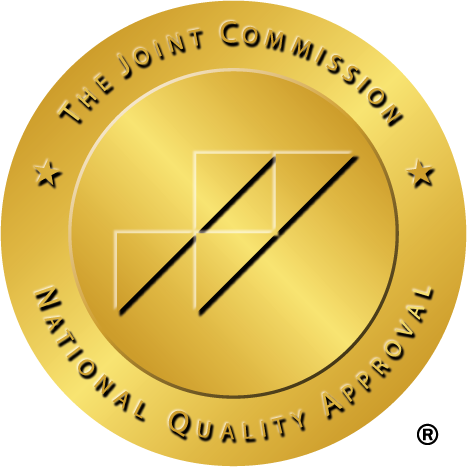KEY POINTS
- Mental health urgent care provides immediate care for those experiencing mental health distress and who will benefit from counseling, medication management, and case management.
- Emergency room services should be accessed for emergency mental health, such as when a person is a danger to themselves or others.
- Psychiatric urgent care providers offer specialized care for mental health issues instead of providing care focused on physical medical problems.
What Is Mental Health Urgent Care?
Mental health urgent care, also known as behavioral health urgent care, helps people in mental distress who need immediate counseling services, have a critical need for medication, or require medication management services. These providers offer specialized care for mental health issues instead of providing care focused on physical medical problems. Some mental health urgent cares are open 24/7, 365 days a year, while others have service hours and are closed on some holidays.
Like medical urgent care centers, mental health urgent care centers accept insurance and provide emergency assistance regardless of an individual’s financial situation, offering helpful payment options for patients in need. A primary advantage of mental health urgent care facilities is their ability to treat people promptly. However, they do not replace emergency room services. If a patient’s unique situation is extremely severe or one they are not able to treat, the urgent care will refer the patient to a local emergency room for treatment.
How Are Emergency Room Services Different?
Emergency Rooms (ERs) or Emergency Departments (EDs) are part of hospitals and are open 24/7, 365 days a year. ERs accept insurance and provide care independent of a person’s ability to pay. Emergency rooms are equipped to handle advanced life-saving treatment. If you or a loved one are experiencing one of the following, you should visit an Emergency Room:
- Resisting mental health treatment and having severe symptoms
- First time experiencing psychiatric symptoms
- Medical treatment is needed due to self-harm
- Threatening suicide or has made a suicide attempt
- Intoxicated or impaired due to substance use
Any of the above scenarios require a higher level of attention than what can be provided at a mental health urgent care, and emergency medical treatment should be sought immediately, either by going to an emergency room or calling 911.
Pros & Cons Of Mental Health Urgent Care
Pros
- Able to provide more individualized care
- Waiting rooms are typically quieter
- Provides rapid access to multidisciplinary mental health care in an outpatient setting[1]
- Provides immediate care to those experiencing a mental health crisis and avoids using higher levels of care, such as ERs, or escalating into a more serious crisis
- It does not have the same stigma that may be associated with seeking mental health care at an ER
Cons
- Services are limited to treating mental health needs only
- No specialized medical equipment to treat a medical emergency
Pros and Cons of Emergency Room Mental Health Care
Pros
- Open 24/7, 365 days a year, even on weekends and holidays
- Can address mental health and physical health needs
- Some ERs have mental health staff integrated into their triage and assessment[2]
Cons
- Can have long wait times to see a physician or mental health provider
- People may be exposed to distressing sights and sounds while waiting[3]
- ER assessments are more likely to result in hospitalizations [4]
- Providing mental health services can take away resources that are needed to treat more life-threatening situations.
- If a mental health need is not deemed to be at an emergency safety level, people are often discharged with minimal follow-up care
- ER providers may not be trained in how to empathetically care for those in a mental health crisis, especially if the patient has presented on multiple occasions following self-harm or if the patient has a personality disorder[5]
What Happens When You Go To Urgent Care For Mental Health?
Most mental health urgent cares have walk-in open hours. Once you arrive at the urgent care center, you will provide your basic information at the front desk or reception and complete any required intake paperwork.[6]
You will then meet with a mental health provider (this may be a mental health counselor, a social worker, or a nurse practitioner) to complete an initial assessment and determine what your needs are. You may also meet with a psychiatrist or a psychiatric nurse practitioner to address any medication needs you may have.
After completing the assessment, a proposed intervention will be made based on your needs. This may include meeting further with a therapist to address your mental health needs, consulting with a psychiatrist to review their medication recommendations for you, or meeting with a case manager to address other needs you may have brought up in assessment, such as difficulties with basic needs of food, clothing, or housing.
After the assessment and intervention, a follow-up appointment is usually made. The follow-up may be with urgent care providers or with community mental health services. The goal is to connect you with services to address the needs that resulted in you seeking mental health urgent care.
Can You Seek Emergency Mental Health Care In The US?
The demand for emergency mental health care is on the rise in the United States. In 2021, almost 6 million adults in the U.S. sought mental health services from an ED, an increase of 1 million compared to 2017.[7] The demand for mental health services has created an extensive wait for services, with the average wait time to get an appointment for mental health treatment being 67 days.[8]
A significant positive with mental health urgent care is that you will likely see a provider within an hour. Upon completion of your assessment, follow-up options are available if your crisis needs have not been met during the one visit.
In the United States, you can seek emergency mental health care from:
- Walk-in mental health clinics near you
- Mental health urgent care clinics
- Emergency Rooms/Emergency Departments
What Constitutes A Mental Health Crisis Or Emergency?
A mental health crisis is when a person’s behaviors, emotions, or psychiatric situation result in:[9]
- A reduced level of functioning in their daily activities
- An emergency situation
- A placement in a more restrictive setting, such as inpatient hospitalization
With appropriate crisis intervention, the above results may be avoided. A mental health crisis is a prime situation to access mental health urgent care.
A mental health emergency is when a person’s behaviors, emotions, or psychiatric situation causes an immediate need for emergency mental health services intervention.[10] A mental health emergency requires immediate attention and is a situation where emergency room services should be accessed. Examples of a mental health emergency include:
- Attempts or threats to harm or kill themselves or others
- Delusions, hallucinations, or extreme paranoia
- Extreme withdrawal and isolation
- Not sleeping or eating for days
- Verbal or physical abuse
Mental Health Care at New Waters
New Waters Recovery has a 5-14 day psychological evaluation, assessment & testing program. This program is for individuals who are experiencing mental health disorder symptoms or who are struggling with a substance use disorder. Our extensive assessment program includes medical testing, psychiatric evaluations, and psycho-diagnostic testing. These services allow you to have a comprehensive assessment that results in a reliable diagnosis and access to evidence-based treatment programs.
SPEAK WITH AN ADMISSIONS COUNSELOR TODAY
Related Topics
Frequently Asked Questions About Emergency Mental Health Treatment
Sources
[1] Sunderji, N., & Stergiopoulos, V. (2015). Urgent Psychiatric Services: A Scoping Review. Canadian Journal of Psychiatry. Revue Canadienne de Psychiatrie, 60(9), 393-402. Retrieved from https://www.ncbi.nlm.nih.gov/pmc/articles/PMC4574715/ on 2024, August 28.
[2,3,4,5,11,12] Johnson, S., Baker, J., Hanlon, C., Salisbury, T. T., Fossey, M., Newbigging, K., Carr, S. E., Hensel, J., Carrà, G., Hepp, U., Caneo, C., & Needle, J. J. (2022). Acute psychiatric care: Approaches to increasing the range of services and improving access and quality of care. World Psychiatry, 21(2), 220-236. Retrieved from https://onlinelibrary.wiley.com/doi/10.1002/wps.20962 on 2024, August 28.
[6] Weiner, S.(2024, August 21). Walk-in clinics tackle urgent mental health needs. Association of American Medical Colleges. Retrieved from https://www.aamc.org/news/walk-clinics-tackle-urgent-mental-health-needs on 2024, August 28.
[7] National Center for Health Statistics. Estimates of emergency department visits in the United States, 2016-2022. (n.d.). Retrieved from https://www.cdc.gov/nchs/dhcs/ed-visits/index.htm on 2024, August 28.
[8] Sun, C., Correll, C. U., Trestman, R. L., Lin, Y., Xie, H., Hankey, M. S., Uymatiao, R. P., Patel, R. T., Metsutnan, V. L., McDaid, E. C., Saha, A., Kuo, C., Lewis, P., Bhatt, S. H., Lipphard, L. E., & Kablinger, A. S. (2023). Low availability, long wait times, and high geographic disparity of psychiatric outpatient care in the US. General Hospital Psychiatry, 84, 12–17. Retrieved from https://doi.org/10.1016/j.genhosppsych.2023.05.012 on 2024, August 28.
[9,10] Carver County, MN. (n.d.). When to call crisis. Retrieved from https://www.carvercountymn.gov/departments/health-human-services/mental-health/24-7-crisis-mental-health/when-to-call-crisis on 2024, August 28.



